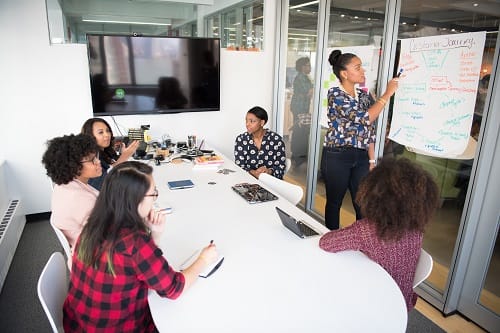
What makes diverse teams in collaborative projects successful?
Recently, I had the privilege of participating in the annual meeting of the African Cassava Whitefly Project, and could directly ask its members to share what they consider key to a successful team collaboration.
Outbreaks of the African cassava whitefly are responsible for serious crop losses resulting in hunger, recurrent famines and annual losses of more than US$1.25 billion. The project aims to increase cassava productivity and reduce food insecurity for millions of sub-Saharan African farmers, by tackling its most devastating pest and disease problems.
The project, led by the Natural Resources Institute of the University of Greenwich, and funded by the Bill & Melinda Gates Foundation, is a collaboration involving a truly global research team of over 50 scientists, postgraduate students, technicians and experts working from 12 institutions and based across nine countries. Together, they are implementing whitefly control approaches in sub-Saharan Africa, based on key research discoveries, and are creating and field-testing a pipeline of novel control methods, to sustainably solve the whitefly disease problem.
Now, how does such a team with team members spread out throughout the world, in different time zones and, due to COVID-19, limited possibilities of physical interaction manage to efficiently collaborate to advance on the project?
According to the members of this international ensemble, there are a number of key attitudes that facilitate collaboration in these circumstances, for instance:
- Patience and understanding with –general and personal– situations.
- Regular meetings to maintain the work flow. With that, because of the different time zones, an eagerness to accommodate one another to make online meetings a frequent reality.
- Responsiveness. Collaborators try to timely respond to each other’s queries to avoid unnecessary delays.
- Open mindedness. Readiness to listen and discuss new ideas to deal with the challenges of the present situation.
- Respect for the multiple and differing skillsets from other collaborators, and a non-judgmental attitude during Q&A.
- Kindness, empathy. Wilful sharing of resources and understanding of possible difficulties.
- Trust. To allow an authentically open discussion and know that the collaborators are doing their best in pushing the project forward.
- Resilience, Determination. Staying on track, despite the difficulties showing a willingness to work towards a common goal.
- Passion. Despite all issues, still believing in science and the need to answer the research questions of the common project.
- Good humor and a positive attitude. Believing that there’s a light at the end of the tunnel is encouraging for all collaborators, and helps move everyone towards that point.
At hfp consulting we believe that collaboration can be fostered by following a few basic principles, which are an integral part of our career development programs. Through our interactive workshops, (future) leaders in science can prepare themselves to deal with the challenges of their position.





